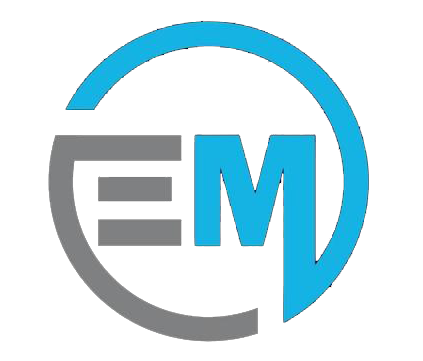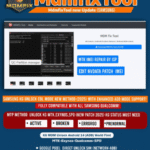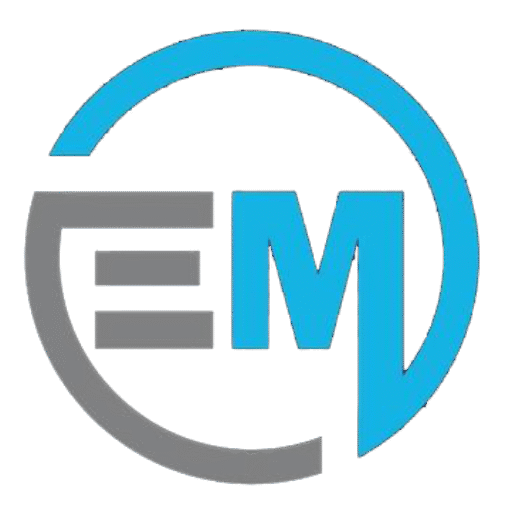In today’s fast-paced business environment, small businesses must efficiently manage their finances to ensure profitability, compliance, and growth. Accounting software for small businesses has become an essential tool to streamline financial operations, simplify bookkeeping tasks, and help owners make informed financial decisions. With a wide range of options available, it’s important for small business owners to choose the right accounting software that aligns with their unique needs, goals, and budget.
This guide will explore the key features of accounting software for small businesses, the benefits of using it, and highlight the best accounting software options available in 2024.
1. What is Accounting Software for Small Business?
Accounting software for small business is a tool designed to help business owners track their financial transactions, manage invoices, create financial reports, and streamline tax compliance. These software solutions are usually cloud-based, which allows small businesses to access their financial data from anywhere and at any time, on any device. Accounting software can automate many manual tasks involved in managing finances, such as generating invoices, processing payments, tracking expenses, and reconciling bank statements.
2. Why Small Businesses Need Accounting Software
Time Efficiency: Small business owners often wear multiple hats, and managing finances manually can be time-consuming and prone to errors. Accounting software automates many processes, freeing up time for business growth activities.
Financial Accuracy: Accounting software minimizes human errors in bookkeeping and financial calculations, ensuring your business’s financial data is accurate.
Tax Compliance: Accounting software helps businesses stay compliant with tax laws by keeping track of income, expenses, and deductions throughout the year, making tax filing easier and reducing the risk of penalties.
Financial Insights: By generating financial reports and dashboards, accounting software provides small business owners with insights into the health of their business, helping them make data-driven decisions.
Growth Scalability: As your business grows, your accounting needs become more complex. Cloud-based accounting software can scale with your business, accommodating additional users, more transactions, and higher complexity.
3. Key Features to Look for in Accounting Software
Invoicing and Billing: The ability to create and send invoices, set up recurring billing, and track payment status.
Expense Tracking: Track all business expenses, categorize them, and ensure they’re properly recorded for tax deductions.
Bank Reconciliation: Automatically import and reconcile transactions from your bank accounts and credit cards.
Financial Reporting: Generate reports such as balance sheets, profit and loss statements, and cash flow reports to gain a clear picture of your business’s financial status.
Tax Management: Accounting software should allow you to calculate and track sales tax, prepare tax returns, and generate reports needed for filing taxes.
Multi-User Access: If you have a team, you’ll need software that supports multiple users with varying permission levels.
Cloud-Based Access: Access your accounting data from anywhere, at any time, with cloud-based accounting solutions.
Integration: Ability to integrate with other business tools like payroll, inventory management, e-commerce platforms, and CRM software.
Mobile Access: Mobile apps that allow you to manage your business finances on the go.
4. Top Accounting Software for Small Business in 2024
1. QuickBooks Online
QuickBooks Online is one of the most popular accounting software options for small businesses due to its user-friendly interface and comprehensive features. It offers everything from invoicing and expense tracking to payroll integration and tax filing tools.
Best for: Small to medium-sized businesses looking for an all-in-one accounting solution.
Features: Income and expense tracking, invoicing, tax tracking, financial reporting, payroll, inventory management, mobile access, and multi-user support.
Pricing: Starts at $25 per month for the Simple Start plan.
2. Xero
Xero is a cloud-based accounting software known for its simplicity and ease of use. It’s a great option for small businesses that need robust financial tools but prefer a less complicated solution.
Best for: Small businesses that need simple, easy-to-use accounting software with a focus on collaboration.
Features: Bank reconciliation, invoicing, expense tracking, payroll integration, financial reporting, and multi-currency support.
Pricing: Starts at $13 per month for the Early plan.
3. FreshBooks
FreshBooks is ideal for small service-based businesses and freelancers who need simple invoicing and expense tracking features. It offers excellent customer support and customizable billing options.
Best for: Freelancers and service-based businesses looking for simple invoicing and time-tracking tools.
Features: Time tracking, invoicing, expense management, financial reporting, and project management tools.
Pricing: Starts at $15 per month for the Lite plan.
4. Wave
Wave is a free accounting software that’s perfect for small businesses with basic accounting needs. It offers essential features such as invoicing, expense tracking, and financial reporting, with additional paid services like payroll and payment processing.
Best for: Small businesses or startups with simple accounting needs and limited budgets.
Features: Invoicing, expense tracking, financial reporting, multi-currency support, and receipt scanning.
Pricing: Free for core features; paid services for payroll and payment processing.
5. Zoho Books
Zoho Books is a cloud-based accounting software that provides small businesses with a full suite of accounting features, including automation tools and multi-currency support. It integrates seamlessly with other Zoho applications.
Best for: Small businesses already using Zoho products or looking for affordable and feature-rich accounting software.
Features: Invoicing, expense tracking, bank reconciliation, project management, reporting, and integration with Zoho apps.
Pricing: Starts at $15 per month for the Basic plan.
6. Sage Business Cloud Accounting
Sage is a reliable and secure accounting platform that caters to small businesses, offering a range of useful features, including project tracking, expense management, and detailed reporting.
Best for: Small businesses that need scalable accounting software with strong customer support.
Features: Invoicing, expense management, financial reporting, inventory management, and multi-currency support.
Pricing: Starts at $10 per month for the Start plan.
5. How to Choose the Right Accounting Software for Your Business
Assess Your Needs: Consider your business’s size, industry, and specific requirements (e.g., invoicing, payroll, or tax filing).
Ease of Use: Choose software with an intuitive interface that your team can easily learn and navigate.
Budget: Determine how much you are willing to spend, taking into account both the software costs and any additional fees for add-ons or support.
Integrations: Ensure that the accounting software integrates with other tools you already use, such as CRM, payroll, or e-commerce platforms.
Customer Support: Choose a platform with excellent customer service, including online resources, phone support, and live chat.
Scalability: Opt for software that can grow with your business, allowing you to add features and users as needed.
6. Benefits of Using Accounting Software
Improved Efficiency: Automates time-consuming tasks like data entry, invoicing, and tax preparation, saving time and reducing human error.
Financial Control: Provides a real-time overview of your business’s financial health, helping you make more informed decisions.
Tax Compliance: Keeps track of your tax obligations, ensuring you stay compliant with local and national tax laws.
Better Cash Flow Management: Tracks income and expenses, helping you monitor cash flow and avoid financial problems.
Cost Savings: Eliminates the need for hiring expensive accountants for basic bookkeeping tasks.
7. Common Challenges of Accounting Software for Small Businesses
Learning Curve: Some accounting software platforms can be complex, requiring time to learn how to use all of the features effectively.
Integration Issues: Some accounting software may not integrate well with other tools you use, requiring workarounds or manual data entry.
Cost: While some accounting software solutions are affordable, others can become costly, especially when additional features or users are added.
Data Security: Cloud-based accounting software may raise concerns about the security of sensitive financial data, though most top platforms offer strong encryption and security measures.
8. Future Trends in Accounting Software
AI-Powered Automation: Accounting software will increasingly use artificial intelligence (AI) to automate tasks like categorizing transactions and forecasting cash flow.
Blockchain Integration: Blockchain technology could be integrated into accounting software to provide a more secure and transparent way of handling transactions.
Real-Time Data Analytics: More platforms will provide real-time financial reporting, allowing businesses to access up-to-date information for better decision-making.
Mobile-First Solutions: Mobile apps for accounting software will continue to improve, enabling small business owners to manage their finances from anywhere.
9. Conclusion
Accounting software is an essential tool for small businesses in 2024, helping them streamline financial management, improve efficiency, and ensure tax compliance. With a wide range of options available, small business owners can choose the accounting software that best suits their needs, budget, and business goals. By automating key financial tasks, businesses can focus more on growth, innovation, and delivering value to their customers.




